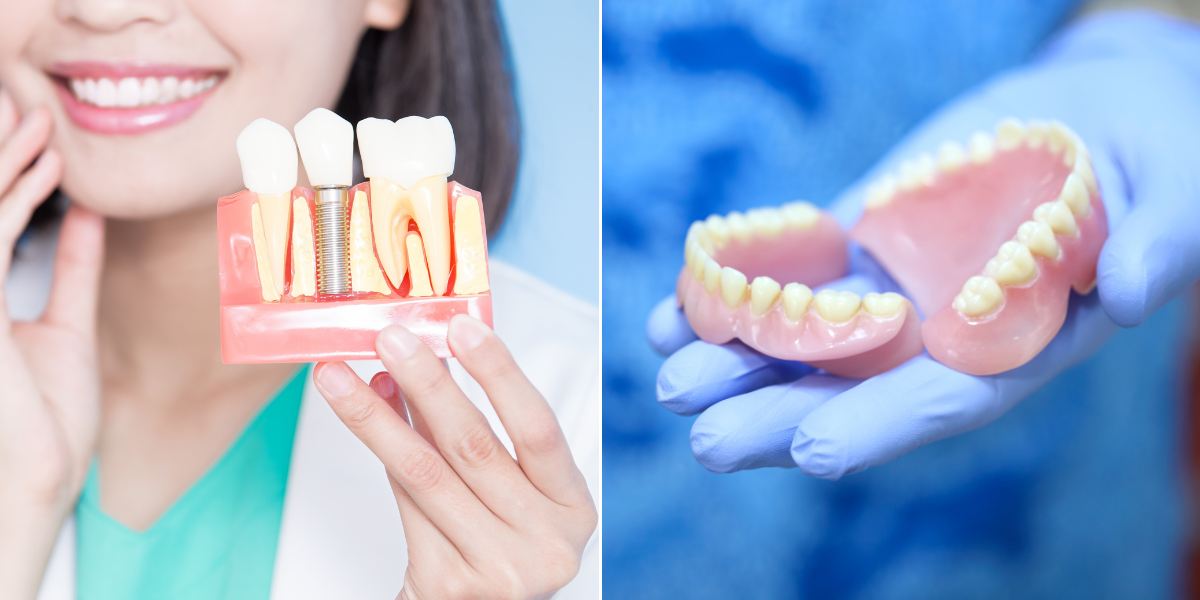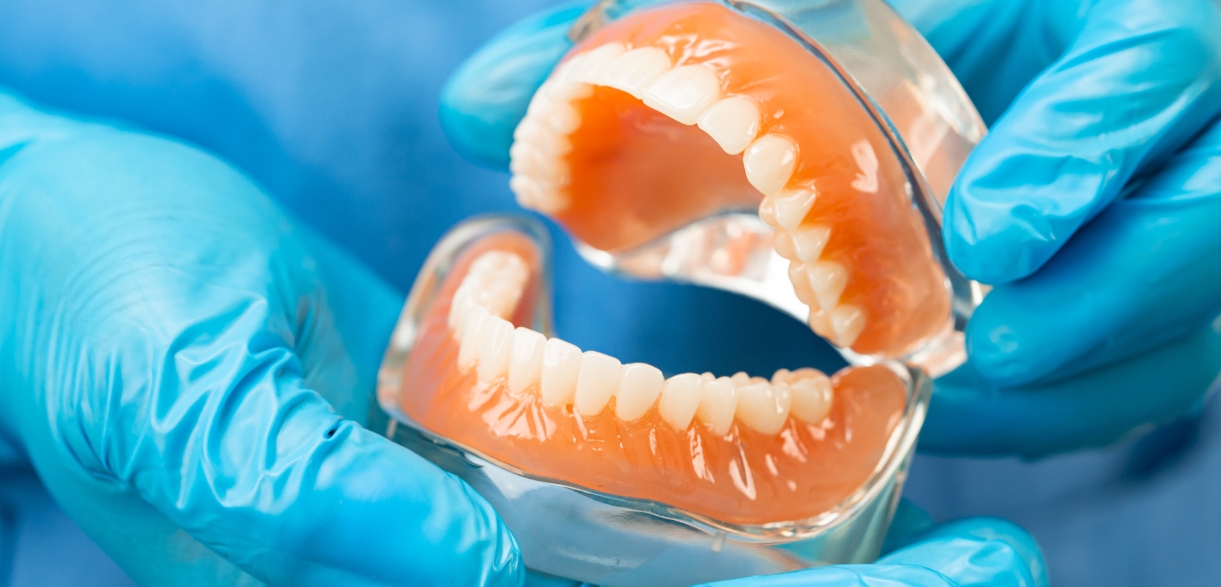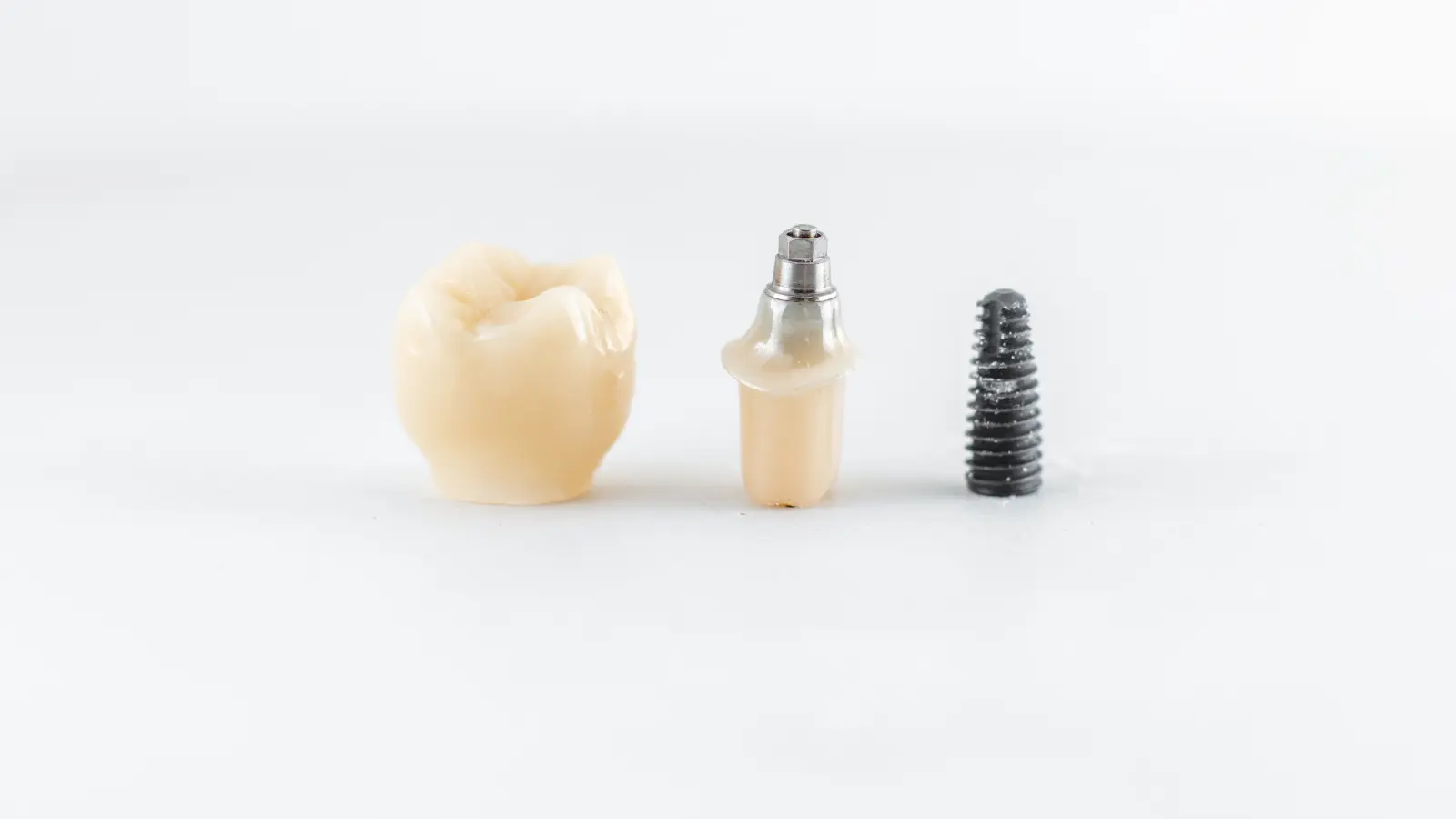$99 New Patient Special - Includes Exam, X-Ray and Basic Cleaning
Dental Implants Vs. Dentures: Which Is The Superior Option?

When it comes to restoring your smile after tooth loss, dental implants and dentures are two popular choices. Both have their unique benefits and drawbacks, but understanding which option is superior depends on various factors, including your dental health, lifestyle, and budget.
In this comprehensive guide, we’ll delve into the details of dental implants and dentures, comparing their features to help you make an informed decision.
What Are Dental Implants?
Dental implants are prosthetic tooth roots made of titanium posts that are surgically placed into the mandible. Once the implants integrate with the bone, they provide a sturdy foundation for crowns, bridges, or dentures.
Key Features of Dental Implants:
- Durability: Implants that are properly cared for can last a lifetime.
- Bone Health: They stimulate the jawbone, preventing bone loss.
- Natural Appearance: Natural teeth seem and function like implants.
- No Adjacent Tooth Impact: They do not require altering nearby teeth.
What Are Dentures?
Dentures are prostheses that are removable and used to replace lost teeth. They can be complete (replacing all teeth in an arch) or partial (replacing a few missing teeth).
Key Features of Dentures:
- Affordability: Generally, dentures are less expensive than implants.
- Quick Solution: They can be made and fitted relatively quickly.
- Non-Invasive: No surgery is required to fit dentures.
- Customizable: They can be tailored to match your existing teeth.
Dental Implants and Dentures: A Comparative Study
1. Longevity and Durability
- Dental Implants: With proper care, you can make implants last a lifetime. They consist of biocompatible materials that fuse with the bone, making them highly durable.
- Dentures: While modern dentures can last 5 to 10 years, they may need adjustments or replacements over time due to wear and changes in the jaw.
2. Cost Considerations
- Dental Implants: The initial cost of implants can be higher. However, considering their longevity, they may prove more cost-effective in the long run.
- Dentures: Dentures are typically a more budget-friendly option upfront. However, ongoing maintenance and replacement costs can add up over time.
3. Comfort and Functionality
- Dental Implants: Most patients find implants more comfortable than dentures. They eliminate the discomfort associated with removable appliances and allow for better chewing and speaking.
- Dentures: While dentures have improved significantly, they can still slip or move, especially if not fitted properly. This can lead to discomfort and difficulty eating certain foods.
4. Aesthetics
- Dental Implants: Implants provide a natural look and feel, closely mimicking the appearance of real teeth.
- Dentures: Modern dentures can be quite lifelike, but they may not provide the same level of aesthetic appeal as implants, especially if they do not fit perfectly.
5. Maintenance and Care
- Dental Implants: Maintenance involves regular brushing, flossing, and routine dental check-ups. They do not require any special care beyond that of natural teeth.
- Dentures: You should remove dentures daily for cleaning and store them in a safe solution when not in use. Dentures can be more prone to staining and damage compared to implants.
When Should You Choose Dental Implants?
Dental implants are often advised for those who:
- Have sufficient jawbone density to support the implants.
- Are looking for a long-term solution.
- Prefer a natural feel and appearance.
- Are willing to undergo a surgical procedure.
When To Choose Dentures?
Dentures may be a better choice for individuals who:
- Are on a tighter budget.
- Require a quicker solution for tooth loss.
- Prefer a non-invasive option.
- Are not suitable candidates for implants due to health concerns.
The Process of Getting Dental Implants and Dentures
Getting Dental Implants
- Consultation: Your dentist will assess your oral health and take X-rays.
- Surgical Placement: The implant post is inserted into the jawbone by surgery.
- Healing Period: A healing period of several months is necessary for osseointegration (bone fusion).
- Abutment Placement: The implant has an abutment attached to it.
- Crown Placement: Lastly, the abutment is covered with a custom crown.
Getting Dentures
- Consultation: Your dentist will evaluate your mouth and discuss options.
- Impressions: Impressions of your mouth will be taken for a custom fit.
- Try-In: A try-in phase allows for adjustments before the final denture is made.
- Final Fitting: The final denture is fitted, and adjustments are made as needed.
Choosing between dental implants and dentures ultimately depends on your personal needs, budget, and dental health. Dental implants offer a long-lasting, durable solution that closely mimics the function of natural teeth, while dentures provide a more immediate and affordable option. Consulting with a certified dentist can help you weigh your options and find the best solution for your smile restoration journey. No matter which option you choose, restoring your smile is a significant step toward improving your quality of life.







